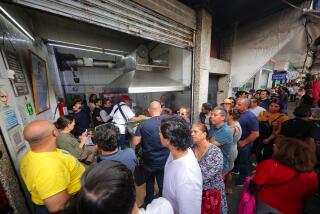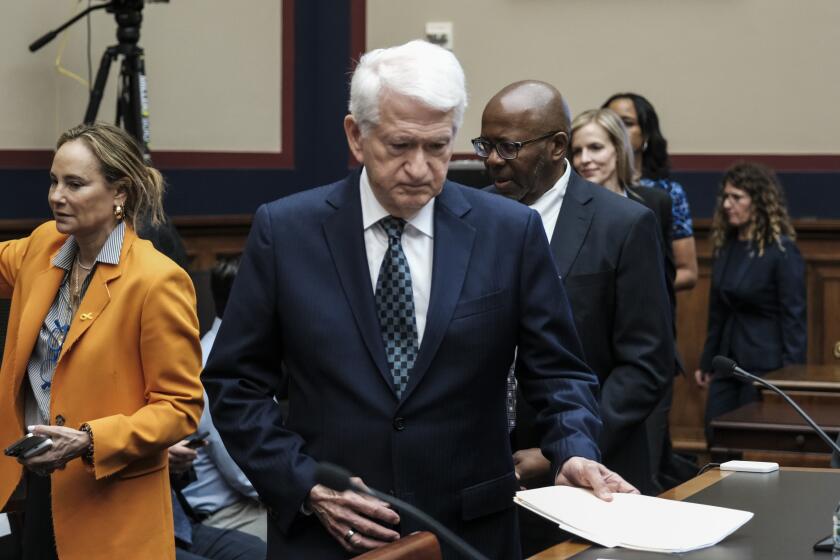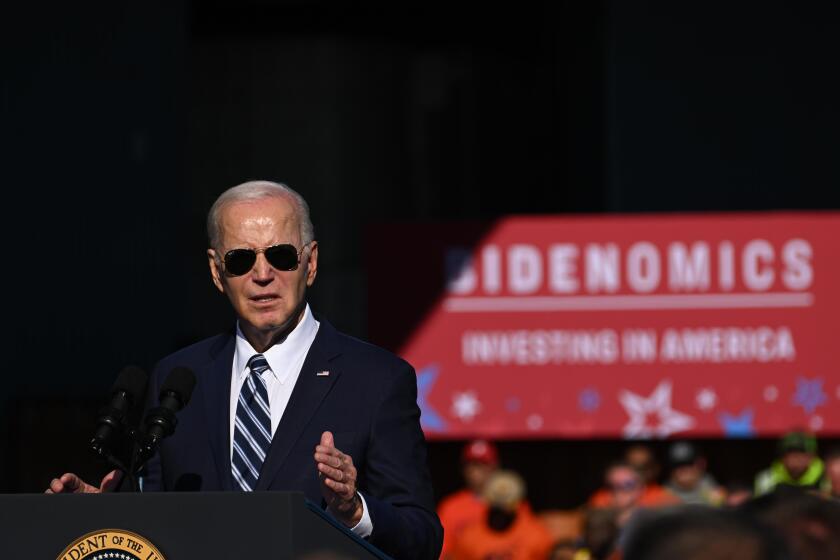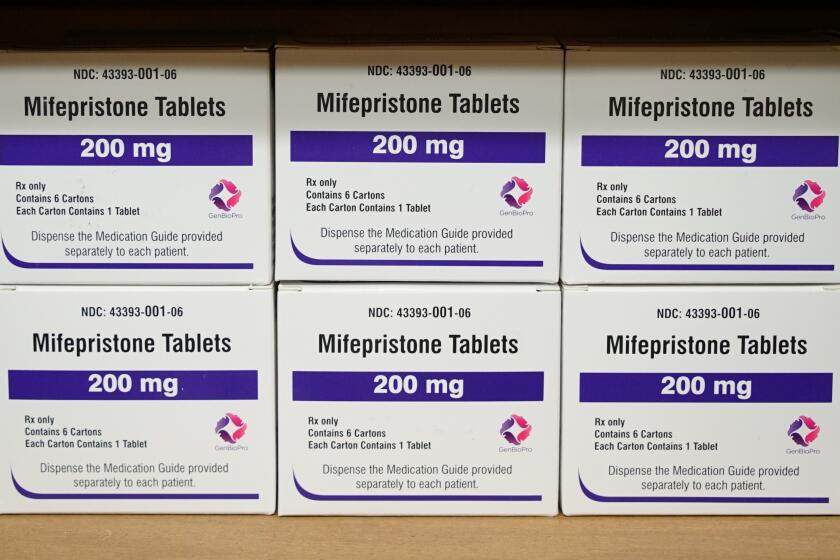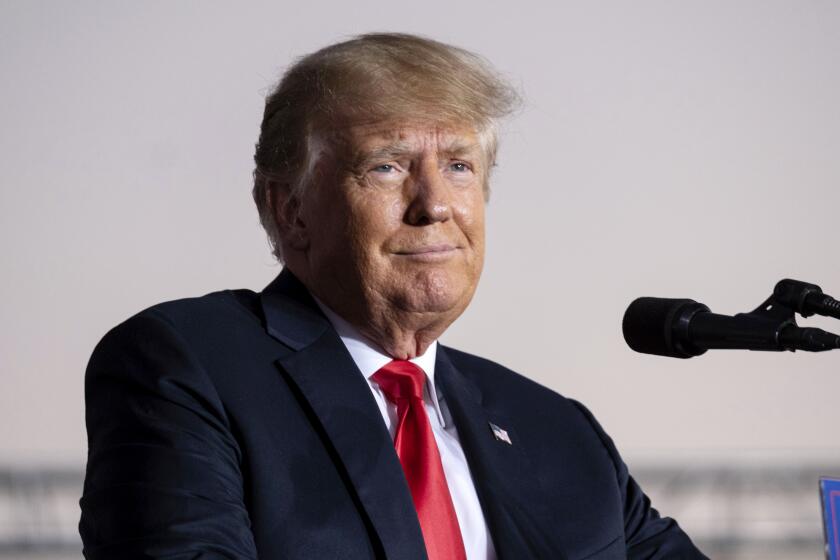VICTORY IN EUROPE : Elderly Veterans Recall Soviet--Not Russian--Triumph : Bystanders: Some in Red Square miss trappings of empire. Elsewhere in capital, 20,000 join Communist-led parade.
They met sitting next to each other at a Red Army lecture in 1944. This year, they will celebrate their 50th wedding anniversary.
Clutching daffodils for victory and each other’s arms for joy, white-haired veterans Zinaida V. and Boris F. Kreslavsky stood alongside Lenin’s Tomb on Tuesday, not far from President Clinton, and watched sanitized visions from their youth parade through Red Square.
“We never thought we’d live this long,” said Zinaida, 71, a wartime field radio operator. “We’re just happy we’ve survived to see this.”
Young soldiers dressed in vintage World War II uniforms goose-stepped over the shiny cobblestones, the echo of their clanking boots resounding against the Kremlin’s red brick walls. Old men and women marched proudly in perfect rhythm, heads held high, though some of the less mobile were visibly taxed by the effort.
In an uneasy compromise between historical accuracy and the sentiments of the Western dignitaries who had come to Moscow to commemorate the 50th anniversary of the surrender of Nazi Germany, Tuesday’s Red Square parade did not include any military hardware. It was also short on hammers and sickles, red flags and other Soviet-era symbols.
But behind the marchers towered huge banners of unmistakably Soviet proportions. “USSR Victory,” one poster read.
Another showed a 20-foot woman holding a draft notice. “The Motherland Calls You,” the slogan read. In one of the ironies that punctuated Tuesday’s celebrations, the patriotic banner was draped over the GUM department store exactly above a new German boutique in which prices are quoted only in German marks.
“I’m not offended by a German store in Red Square,” said Boris Kreslavsky, 73. “As long as people are working, let them work for marks. But there should be a Russian store in Los Angeles that quotes its prices in rubles.”
The Kreslavskys, who each wore a faded navy coat festooned with medals for valor and held their daffodils rolled up in a sheet of newspaper, mourn the loss of the Soviet Union, the country they fought to defend. They found Tuesday’s parade too small, too subdued and not rich enough for their taste.
“I saw on TV last night that Canadians took their veterans to parade in cars,” Boris Kreslavsky said. “It would have been better, given that there was nobody here today younger than 70.”
Kreslavsky served in a unit that took Potsdam, in eastern Germany, then marched on to meet the U.S. Army at the Elbe River. He still remembers the grim years when Russia fought the Nazis virtually alone and waited for the Western Allies to open up a second front, when he and his fellow soldiers used to joke that “the Americans won’t send troops until the last one finishes sewing the last button on his coat.”
“To tell you honestly, we lost 28 million in this war; America lost 380,000” in Europe, Kreslavsky said. “We lost 60% of our national income; America didn’t lose a gram, just 0.4%. . . . Without help from the Americans, the war would have lasted 10 years longer. But it was Russian--Soviet--soldiers who saved the world from fascism.”
After the war, he went to work in a research institute. She taught history. They had two sons, three grandsons. But their dreams of a life of peace and prosperity proved elusive.
“We had hoped for better,” he said.
“But we lived all right,” his wife replied.
Immediately after the Red Square ceremony, an estimated 20,000 veterans and protesters joined an unofficial, Communist-led parade that wound down Tverskaya Boulevard, once called Gorky Street and now festooned with flags, neon marquees, swanky shops and huge billboards.
“Only the people with connections could get into Red Square,” explained Oleg I. Sharov, 73, a former Soviet army major who marched in a sea of red flags dotted with portraits of wartime leader Josef Stalin.
Sharov recalls going into battle shouting, “For the Motherland, for Stalin!”
Now his monthly pension is $41--an average such sum in today’s Russia. He says he still does not understand how a country as powerful as the Soviet Union could simply go bankrupt.
As testy Interior Ministry troops looked on, the parade snaked past the Kremlin and on to Lubyanka Square, site of the headquarters of the ex-KGB.
There, under bright skies made clearer by a squad of pre-holiday cloud-seeders, babushkas in frayed coats sipped Fanta and Sprite soft drinks while listening to speeches extolling the Soviet Union’s glorious victory and denouncing Russian President Boris N. Yeltsin’s regime.
Maria M. Rokhina, a 70-year-old veteran of the battle for Stalingrad, said she was protesting Yeltsin’s attempt to erase Stalin--and the nation he led--from the victory ceremonies. Yeltsin “did not once name the Soviet Union or the Soviet people, but we were Soviet, and we fought not for Russia but for the Soviet Union,” she said. “He didn’t want to offend your Clinton, but he offended us.”
More to Read
Start your day right
Sign up for Essential California for news, features and recommendations from the L.A. Times and beyond in your inbox six days a week.
You may occasionally receive promotional content from the Los Angeles Times.
